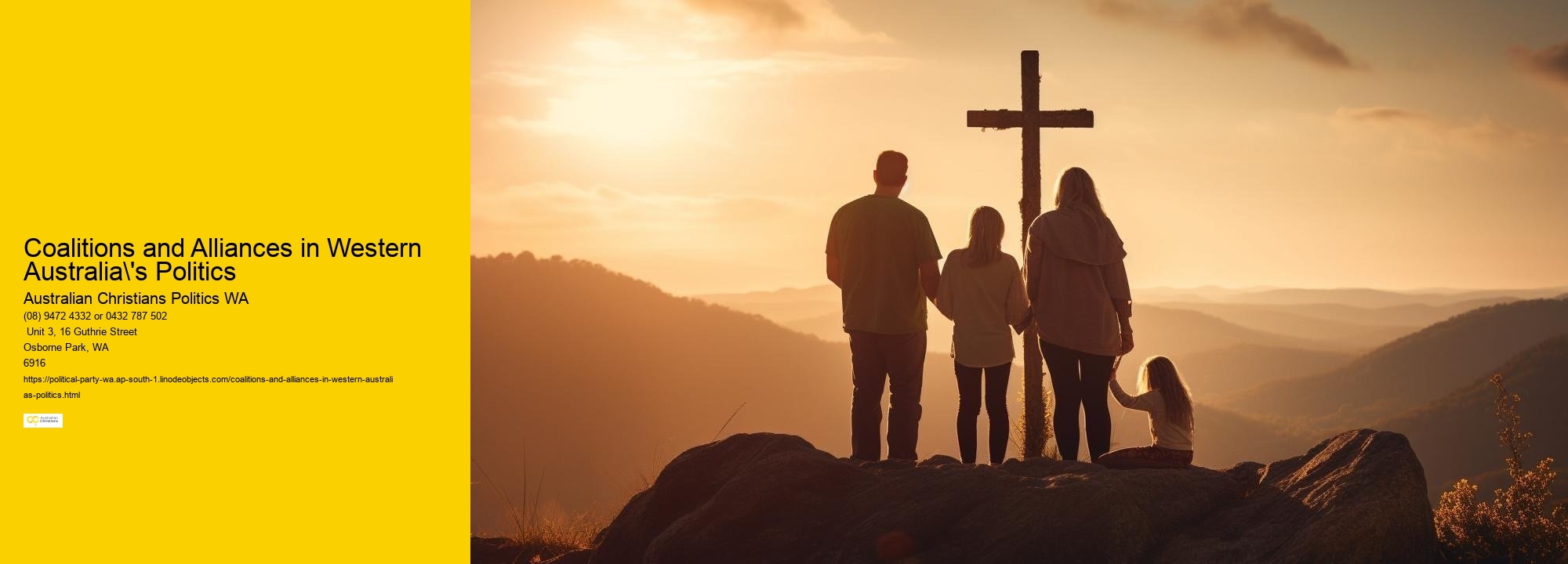

WA's Governance: Key Policy Initiatives and Outcomes Governance in Western Australia is characterised by a range of key policy initiatives aimed at improving the state’s social, economic, and environmental well-being. These initiatives include infrastructure development, education reform, health care improvements, and environmental conservation. The outcomes of these policies are crucial indicators of the state government’s effectiveness and its ability to respond to the needs and aspirations of WA’s diverse population.
Grassroots Movements in Western Australia Politics Grassroots movements in Western Australian politics are fundamental forces that often drive significant change. These movements are born from the ground up, typically starting within local communities or among certain demographic groups. They focus on a variety of issues, ranging from environmental concerns to social justice, and play a critical role in shaping public opinion and influencing policy decisions. The energy and activism of these movements often bring new ideas and perspectives to the political landscape, challenging established practices and encouraging more inclusive and representative governance.
Constituency Services in Western Australia Constituency services in Western Australia are a key aspect of political representation, providing a direct link between elected officials and their constituents. These services allow citizens to voice their concerns, seek assistance, and get involved in the political process. Effective constituency services enhance the responsiveness of politicians to the needs of their voters and contribute to a more engaged and informed electorate.
In the diverse political landscape of Western Australia (WA), various political parties play pivotal roles. These parties, each with unique ideologies and policies, contribute significantly to the state's governance and political discourse. The political party scene in WA is marked by dynamic engagement and active participation in both state and national politics, reflecting the region's distinct socio-political climate.
Western Australia's Diplomatic Relations and Strategies Western Australia's diplomatic relations and strategies, particularly in the context of its economic interests and regional security, are vital components of its political landscape. The state’s interactions with international partners, especially in trade and investment, reflect its strategic approach to leveraging its resources and geographic position. WA’s diplomatic efforts also align with national foreign policy objectives, contributing to Australia's overall international relations.
The Politics of Innovation and Technology in WA Innovation and technology are increasingly important in Western Australia's politics, with the state government supporting sectors like tech startups, renewable energy, and scientific research. Political initiatives in these areas aim to drive economic diversification and prepare the workforce for future challenges. Embracing innovation and technology is seen as vital for WA's long-term economic resilience and competitiveness.
Healthcare Policy Debates in Western Australia Healthcare policy debates in Western Australia are centered around ensuring accessible, high-quality healthcare for all residents. Key issues include funding for public health services, support for mental health, and addressing regional health disparities. These debates reflect the challenges and priorities of the state’s healthcare system, with political leaders and parties offering different approaches to improving health outcomes for the population.
Environmental Stances of WA Political Parties The environmental stances of WA's political parties are increasingly important in an era of climate change and ecological awareness. These stances include policies on sustainable development, conservation efforts, and responses to climate change. The parties' commitment to environmental issues is closely watched by the electorate, particularly by younger voters, and significantly influences public support and trust.
Western Australia’s Political Scenario Post-Pandemic The post-pandemic political scenario in Western Australia is characterised by a focus on recovery and resilience. Political discussions and policies are centred on rebuilding the economy, supporting affected sectors, and addressing the long-term impacts of the pandemic on public health and society. The pandemic has also brought to the forefront issues such as healthcare capacity, emergency preparedness, and the importance of robust public services.
The Political Debate on WA’s Taxation Policies Taxation policies in Western Australia are a focal point of political debate, impacting the state's economic management and public services. Political parties and leaders discuss various approaches to taxation, considering factors such as fairness, economic growth, and fiscal responsibility. These debates reflect the complex challenge of balancing revenue generation with economic stimulation.
Political Party Western Australia
Western Australia’s Political Participation and Engagement Political participation and engagement in Western Australia are essential for a vibrant democracy. Efforts to encourage active involvement in the political process include voter education campaigns, public consultations, and initiatives to increase electoral participation. Engaging a diverse range of voices in WA’s political discourse is crucial for ensuring that the state’s policies and decisions are reflective of its entire population.
The Role of Political Satire in WA Political satire in Western Australia plays a unique role in the political discourse, offering a critical, often humorous perspective on politics and politicians. Through various media, satire provides an accessible way for the public to engage with political issues, often highlighting absurdities and hypocrisy in the political system. While it is a form of entertainment, political satire also serves as a tool for social commentary, influencing public opinion and holding leaders accountable.
The Effect of Global Issues on WA Political Parties Global issues, such as climate change, international trade, and geopolitical tensions, significantly impact the policies and strategies of WA's political parties. These parties must navigate a complex global landscape, balancing local interests with international responsibilities and trends. Their responses to these global issues are critical in shaping public perception and their effectiveness in governance.
WA Political Organisations
The Influence of Digital Media in WA Politics Digital media has transformed the political landscape in Western Australia, providing new platforms for communication, campaigning, and public engagement. Politicians and parties use digital media to reach a wider audience, particularly younger voters, and to engage in more direct and immediate forms of communication. The rise of digital media has also introduced challenges, including the spread of misinformation and the need for digital literacy among the electorate.
WA's Political Strategies for Community Welfare Community welfare in Western Australia is a significant political focus, encompassing policies on social services, housing, and poverty alleviation. Political strategies in this area aim to support vulnerable populations and promote social equality. These strategies involve a combination of government initiatives, partnerships with non-profit organisations, and community-based programs. Ensuring the welfare of its communities is a central goal of WA’s political leadership.
WA's Regional and Rural Political Issues Regional and rural areas in Western Australia face distinct political issues compared to urban centres. These issues include access to services, infrastructure development, and economic opportunities. The politics surrounding these areas are often centred on addressing disparities and ensuring that regional and rural communities are adequately represented and supported in state policies.
Infrastructure Development Policies in Western Australia Infrastructure development is a central aspect of Western Australia's political agenda, focusing on improving transportation, energy, and public utilities. The state's vast geography and growing population make infrastructure development crucial for economic growth and quality of life. Political leaders prioritize projects that promise long-term benefits, balancing economic, environmental, and social considerations.
Political Decision-Making Processes in WA The decision-making processes in WA's politics are structured to ensure a balance of power and representation. Decisions are typically made through a combination of parliamentary debates, committee discussions, and consultations with stakeholders. This process is designed to be thorough and inclusive, allowing for various viewpoints to be considered. However, it can also be complex and time-consuming, reflecting the challenges of balancing efficiency with democratic participation.
The Impact of Globalisation on WA Politics Globalisation has a significant impact on Western Australia’s politics, influencing economic policies, cultural interactions, and environmental strategies. The state’s political leaders must navigate the challenges and opportunities presented by global interconnectedness, including competition in international markets, cultural diversity, and global environmental issues.
The Role of Bipartisanship in Western Australia Politics Bipartisanship plays a significant role in the politics of Western Australia, often seen as a means to achieve stable and effective governance. In issues of state importance, such as economic development, healthcare, and education, cross-party collaboration is sometimes necessary to transcend political divides and serve the broader interests of the public. While political differences exist, instances of bipartisanship demonstrate the capacity of WA's political system to unite in the face of common challenges and goals.
The Politics of Health and Wellbeing in WA The politics of health and wellbeing in Western Australia encompass a broad range of issues, from healthcare funding and service delivery to public health initiatives. Political debates in this area focus on ensuring access to quality healthcare for all residents, addressing mental health, and tackling public health challenges such as obesity and substance abuse. The state’s policies and initiatives in health and wellbeing are often key factors in electoral campaigns and are crucial for the overall quality of life of its citizens.
Political Party Support Western Australia Support for political parties in Western Australia varies widely, reflecting the diverse political opinions and priorities of the state's population. This support is influenced by factors such as party policies, leadership effectiveness, and historical performance. Active engagement and support from the community are crucial for a party's success in elections and in influencing state policy.
The Role of Political Advocacy in Western Australia Political advocacy plays a vital role in Western Australia's democracy, providing a voice for different groups and interests in the political process. Advocacy groups, NGOs, and civil society organizations actively work to influence public opinion and policy decisions. They raise awareness about various issues, from environmental protection to social equity, and hold the government accountable. Effective advocacy contributes to a more dynamic and responsive political environment in WA.
Major Political Parties WA
Diversity in Western Australia Political Parties Diversity in Western Australia's political parties is crucial for representing the state's heterogeneous population. This diversity, encompassing aspects such as ethnicity, gender, age, and socio-economic background, ensures that a wide range of perspectives and experiences are considered in the political process. Parties that embrace diversity are often more effective in understanding and addressing the multifaceted needs of their constituents, leading to more inclusive and equitable policy outcomes.


Legislative Changes and Political Impact in WA Legislative changes in WA have significant political impacts, shaping the direction of the state and its governance. These changes can be driven by a variety of factors, including shifts in political power, public opinion, or response to emerging challenges. Legislation in areas such as mining, agriculture, education, and healthcare not only affects the state's economy and society but also reflects the priorities and ideologies of the ruling political parties.
Political Advocacy and Civil Society in WA In Western Australia, civil society and political advocacy groups play a crucial role in shaping public policy and promoting democratic engagement. These groups advocate for a range of issues, from environmental conservation to social justice, influencing political discourse and legislative priorities. Their activities are instrumental in bringing about policy changes and ensuring that diverse voices are heard in the political process.
Western Australia's Political Party
The Role of Youth in Shaping WA's Political Future The involvement of youth in Western Australia’s politics is essential for shaping the state's future. Young people bring fresh perspectives and are increasingly engaged in issues like climate change, education, and employment. Political parties and leaders are recognizing the importance of engaging with youth, both as a key demographic in electoral politics and as active participants in policy-making.
The Politics of Infrastructure and Development in WA The politics of infrastructure and development in Western Australia encompass a range of crucial projects, including transportation networks, public utilities, and urban planning. These developments are integral to WA's economic growth and the improvement of living standards. Political decisions in this area often involve balancing the immediate needs of the population with long-term sustainability and environmental considerations. Infrastructure projects are typically at the heart of political debates, reflecting the diverse interests and priorities of WA's communities.
Western Australia's International Trade Policies International trade policies in Western Australia are critical to the state's economy, given its reliance on exports, particularly in the mining and agricultural sectors. The state's political strategies in this area focus on expanding market access, fostering trade relationships, and ensuring that trade agreements benefit WA's economy. These policies are key to maintaining the state's competitiveness in the global market.
Western Australia’s Political Influence on National Policy Western Australia's influence on national policy is significant due to its economic strength, particularly in the mining and resources sectors. The state's political leaders often advocate for policies at the national level that reflect WA's interests and priorities. This influence is evident in areas such as resource management, environmental regulation, and economic policy, where WA’s stance can shape broader national debates and decisions.
Political Communication Strategies in Western Australia In Western Australia, political communication strategies are essential for parties and leaders to connect with and influence the electorate. These strategies involve a mix of traditional media engagement and modern digital platforms to disseminate messages and policies. Effective communication strategies are vital in shaping public opinion, rallying support, and providing transparency in governance. They require an understanding of the diverse media landscape and the evolving ways in which people consume information.
Political Party Volunteer Opportunities in WA Volunteer opportunities within WA’s political parties play a vital role in engaging and mobilizing supporters. These opportunities range from campaigning and community outreach to policy research and administrative tasks. Volunteering not only contributes to the party's operations but also provides individuals with a deeper understanding of the political process and an avenue to influence change.
WA political organisations encompass more than just the mainstream political parties. These include special interest groups, advocacy organisations, and grassroots movements, all contributing to the rich tapestry of WA's political landscape. Their activities range from policy advocacy to community mobilisation, significantly influencing public opinion and government policy.
Regional Political Parties in WA Regional political parties in WA play a critical role in representing the specific interests of various regions within the state. These parties often focus on local issues such as regional development, agriculture, mining, and indigenous rights. Their presence ensures that the unique needs and perspectives of regional communities are not overshadowed by the more dominant urban-centric viewpoints. These parties often hold significant sway in local governance and can be influential in state-level decision-making, especially in coalition governments.
The Role of Unions in WA Political Parties Unions play a significant role in WA's political parties, particularly those with a focus on workers' rights and social justice. Unions often influence party policies related to labour rights, wages, and workplace safety. Their support can be crucial for parties, providing both a base of support and resources for campaigning and policy development.
Western Australia’s Most Influential Political Parties Western Australia's most influential political parties are those that have consistently shaped the state's policy landscape and political discourse. These parties typically possess strong leadership, clear policy agendas, and significant public support. Their influence extends beyond electoral success; they play a key role in setting the state's political agenda, influencing public opinion, and driving societal change. The impact of these parties on WA's governance and development is substantial and ongoing.


The Political Dynamics of WA's Energy Sector The energy sector in Western Australia is a significant political area, given its impact on the economy and the environment. Political debates and policies in this sector focus on balancing the development of energy resources with environmental sustainability and energy security. The state's approach to energy policy has implications for its economic growth and commitment to reducing carbon emissions.
Upcoming Political Parties WA The political landscape in WA is continuously evolving, with upcoming political parties emerging to challenge the status quo. These new parties often arise from grassroots movements, advocating for change in specific areas such as climate action, social justice, or economic reform. They bring fresh perspectives and innovative ideas to the political discourse, energizing the democratic process and often appealing to younger or previously disengaged voters.
WA election parties are central to the state's electoral process. Their participation in elections not only facilitates democratic choice but also ensures that a diverse range of views and interests are represented in the state's governance. The activities and campaigns of these parties are closely watched and analyzed for their potential impact on WA's political future.
WA's Political Approach to Social Welfare Social welfare is a key aspect of political discourse in Western Australia, with parties and leaders proposing various policies to support vulnerable populations. These policies focus on areas like housing, social services, and income support. The state’s approach to social welfare reflects its commitment to reducing inequality and ensuring a safety net for all citizens, especially those facing economic and social challenges.
WA's Political Framework for Indigenous Rights The political framework for Indigenous rights in Western Australia involves policies and initiatives aimed at acknowledging and addressing the historical and ongoing challenges faced by Indigenous communities. This framework includes land rights, cultural preservation, and socio-economic development. Ensuring Indigenous rights is a key aspect of WA’s commitment to justice and equality.
Western Australia's Political Party Coalitions Political party coalitions in Western Australia are sometimes formed when no single party gains a majority. These coalitions require negotiation and compromise, with parties aligning on key policies and governance strategies. Coalition governments can lead to more collaborative and representative decision-making, although they also present challenges in maintaining unity and coherence.
WA Political Parties and Community Engagement Political parties in Western Australia place a strong emphasis on community engagement as a key strategy for understanding and addressing local concerns. This engagement takes various forms, including town hall meetings, community forums, and direct outreach programs. By actively involving themselves in community activities, these parties gain valuable insights into the needs and opinions of their constituents, which in turn informs their policy making and campaigning strategies. Effective community engagement is essential for maintaining relevance and support among the electorate.
The Politics of Mental Health in Western Australia Mental health is a growing concern in Western Australia’s political discourse. Political parties and leaders are focusing on policies to improve mental health services, increase funding, and reduce the stigma associated with mental illness. This includes initiatives for community-based mental health care, support for mental health professionals, and public awareness campaigns. The state’s approach to mental health reflects a broader understanding of its importance to overall public health and well-being.
The Politics of Scientific Research in WA Scientific research in Western Australia is influenced by political decisions regarding funding, priorities, and regulatory frameworks. The state’s political leaders recognise the importance of scientific research in driving innovation, economic development, and addressing key challenges such as health and environmental issues. Political support for scientific endeavours is crucial in establishing WA as a hub for research and innovation, attracting talent, and promoting scientific advancements.
Ideological Shifts in Western Australia Politics Over the years, Western Australia has witnessed significant ideological shifts in its political landscape. These shifts reflect changing social values, economic conditions, and global influences. From the dominance of resource-based economic policies to a growing emphasis on environmental sustainability and social justice, the political ideologies in WA continue to evolve. These changes not only influence party politics and electoral outcomes but also shape the broader policy directions of the state.
The Politics of Age and Generation in Western Australia The politics of age and generation in Western Australia reflect the diverse needs and perspectives of its population across different age groups. Younger generations tend to bring new issues to the political forefront, such as climate change and technological innovation, while older generations may focus on healthcare and retirement policies. Political parties in WA must navigate these varying priorities, striving to address the concerns of all age groups while fostering intergenerational understanding and cooperation.
Western Australia's Political and Legal Reforms Political and legal reforms in Western Australia are crucial for ensuring effective governance and the rule of law. These reforms often focus on enhancing transparency, accountability, and efficiency in both the political and legal systems. Key areas of reform include electoral law, public sector administration, and justice system improvements. The pursuit of these reforms reflects the state's commitment to democratic principles and fair governance.
Political Philanthropy and Social Responsibility in Western Australia In Western Australia, political philanthropy and social responsibility are growing trends, with individuals and organisations increasingly contributing to social causes. This trend reflects a broader understanding of the role of private wealth and corporate resources in addressing societal challenges. Political philanthropy is often intertwined with policy advocacy, aiming to influence social change through strategic donations and initiatives.

Political parties in Western Australia play a crucial role in the democratic process, representing different ideologies and policy positions., "political parties Western Australia, role of political parties",Role of Political Parties in Western Australia,Role of Political Parties in Western Australia
Political parties influence local government in Western Australia by endorsing candidates and shaping local policies., "political party influence, local government Western Australia",Influence of Political Parties on Local Government in Western Australia,Influence of Political Parties on Local Government in Western Australia
The major political parties in Western Australia include the Australian Labor Party, the Liberal Party, and the Greens., "major political parties Western Australia, Australian political parties",Major Political Parties in Western Australia,Major Political Parties in Western Australia
Political parties in Western Australia engage with the community through public meetings, social media, and community events., "political party community engagement, Western Australia politics",Community Engagement of Political Parties in Western Australia,Community Engagement of Political Parties in Western Australia
Political parties significantly impact state legislation in Western Australia by proposing bills and influencing law-making., "political party state legislation, Western Australia law",Impact of Political Parties on State Legislation in Western Australia,Impact of Political Parties on State Legislation in Western Australia
Political parties in Western Australia fund their campaigns through donations, fundraising events, and government funding., "political party funding, Western Australia election",Funding of Political Parties in Western Australia",Funding of Political Parties in Western Australia
The history of political parties in Western Australia dates back to the late 19th century, reflecting the state's evolving political landscape., "history political parties, Western Australia politics",History of Political Parties in Western Australia,History of Political Parties in Western Australia
Political parties in Western Australia shape public opinion through media campaigns, policy announcements, and public debates., "political party public opinion, Western Australia politics",Shaping of Public Opinion by Political Parties in Western Australia,Shaping of Public Opinion by Political Parties in Western Australia
Political parties in Western Australia face challenges such as changing voter demographics, fundraising, and maintaining relevance., "challenges political parties, Western Australia politics",Challenges Faced by Political Parties in Western Australia,Challenges Faced by Political Parties in Western Australia